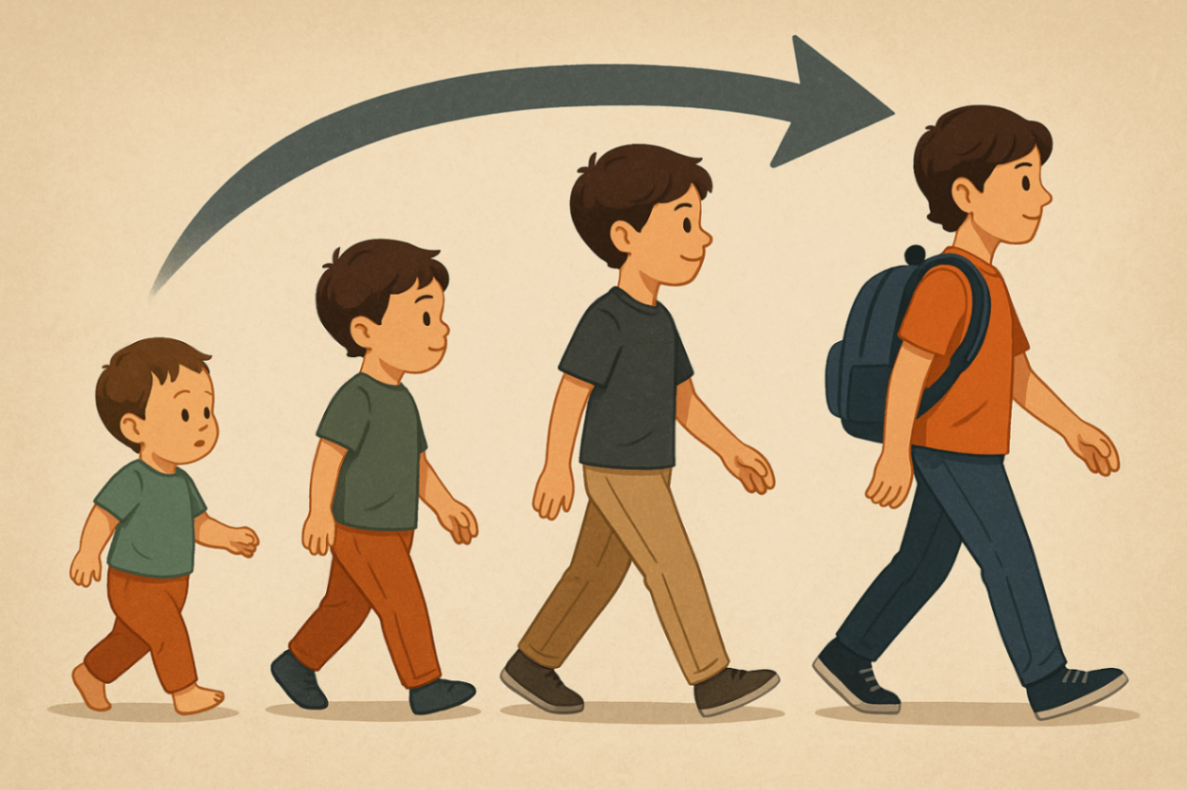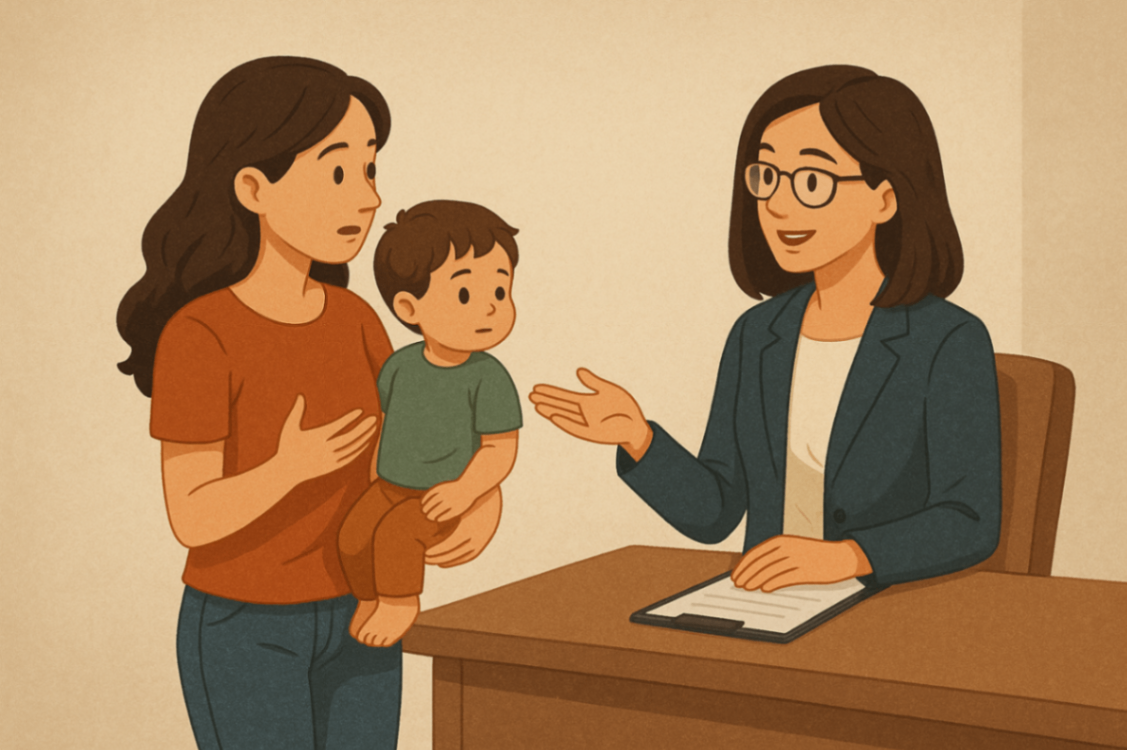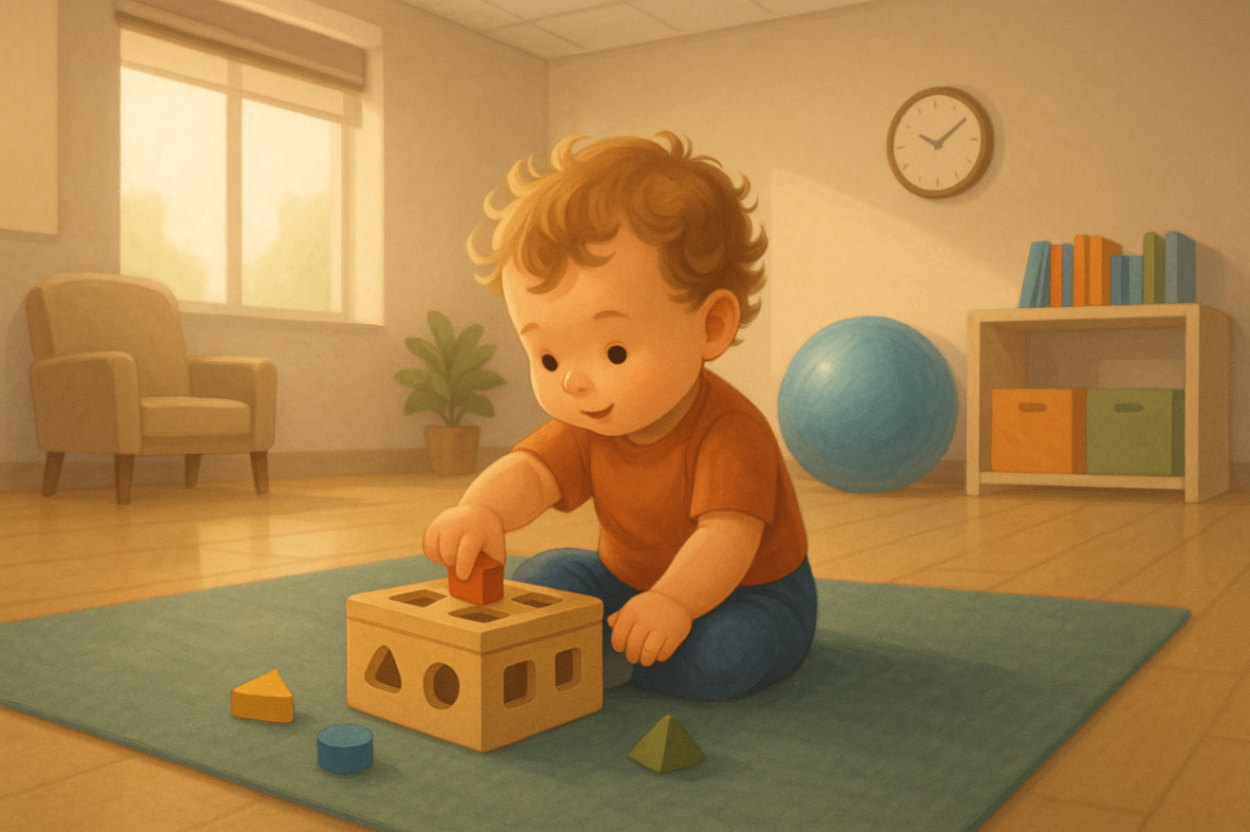
how behaviour support strategies evolve as your child grows
24 June, 2025

Key Highlights
-
Behaviour support strategies adapt to match your child’s developmental stages and evolving behavioural needs.Behaviour Support Strategies adapt to match your child’s developmental stages and evolving behavioural needs.
-
Positive behavioural interventions (PBIS) ensure children build essential skills through reinforcement and guidance.
-
Family dynamics and the surrounding environment play a crucial role in shaping how children respond to behavioural expectations.
-
Tools like behaviour assessments help educators and families understand changing child behaviour.
-
Strategies include universal supports, targeted interventions, and intensive measures based on the child’s unique needs.
-
Collaboration with a behaviour therapist remains vital as PBIS is adjusted over time, including through regular PBS plan update reviews.
Introduction
Understanding Behaviour Support Strategies helps families and teachers better meet student needs. Positive behavioural interventions guide children toward emotional learning and help them build respectful social relationships. These strategies also work to reduce challenging behaviours, especially when tailored to a child’s current stage of growth.
When you adjust support to fit where a child is developmentally, it can improve both academic outcomes and daily interactions. Responsive practices ensure that as children face new environments or social challenges, they receive the structure and support they need to keep progressing.
What Are Behaviour Support Strategies and Why Do They Change Over Time?
Behaviour Support Strategies are tools and approaches that guide children toward positive behaviour. These strategies must evolve over time because children are constantly growing—mentally, emotionally, and socially. A preschooler has very different needs from a primary school student, so it’s important to change supports accordingly.
One key reason for updating support is to keep up with changing child behaviour. As children learn new skills, experience different environments, or face new challenges, their behavioural responses shift. Strategies that once worked may become less effective, making timely PBS plan updates essential.
Key Principles of Positive Behaviour Support
Positive Behaviour Support (PBS) uses supportive, proactive methods to guide children’s behaviour. It works by reinforcing what we want to see rather than punishing what we don’t. Clear rules, daily routines, and praise are simple examples that help children understand what’s expected.
Small cues, such as hand gestures or proximity, can gently steer behaviour in the right direction. These techniques are more effective when personalised and consistently reviewed. Regular reviews allow families and therapists to monitor if supports are still appropriate—especially in relation to the child’s current NDIS goals and the applicable NDIS therapy rate.
To understand how support plans are built before they evolve, check out this guide to functional behaviour assessments for Liverpool families.
The Role of Family and Environment in Behaviour Development
Children thrive when their home, school, and community classroom environments are in sync. A consistent set of rules and positive interactions across these spaces allows children to feel secure and supported. Educators and parents who communicate often can reinforce the same Behaviour Support Strategies, making them more effective.
In suburbs like Casula, Wattle Grove, Moorebank, and Chipping Norton—part of Liverpool’s 15km catchment—many families benefit from close-knit school communities and access to local NDIS-approved therapy clinics. These environmental advantages play a big role in shaping behaviour outcomes.
How Behaviour Support Is Tailored to Each Stage of Childhood
 Behaviour supports that help most students in a complete war support changes as your child becomes more independent and grows emotionally. At first, the focus is on basic skills, using universal y.
Behaviour supports that help most students in a complete war support changes as your child becomes more independent and grows emotionally. At first, the focus is on basic skills, using universal y.
When your child gets older, school teams will start to look at problem behaviours or any student needs that come up. In some cases, intensive intervention is needed if things get more serious. These strategies change as needed over time, so they work at every age. This way, there is a strong plan that helps your child reach each step of behavioural growth.
If your family needs flexibility as your child grows, you might benefit from telehealth behavioural therapy.
Behaviour Support in Early Childhood (Ages 0–5): Building the Foundations
 This is the most crucial time for laying behavioural and emotional foundations. Behaviour Support Strategies may include visuals, song-based transitions, and structured play. Universal supports in this phase help address early signs of changing child behaviour, ensuring challenges are caught early. Behaviour assessments at this age are important to guide the first PBS plan update, usually every 6–12 months under standard NDIS therapy rates.
This is the most crucial time for laying behavioural and emotional foundations. Behaviour Support Strategies may include visuals, song-based transitions, and structured play. Universal supports in this phase help address early signs of changing child behaviour, ensuring challenges are caught early. Behaviour assessments at this age are important to guide the first PBS plan update, usually every 6–12 months under standard NDIS therapy rates.
Primary School Years (Ages 6-12): Adjusting Strategies for Growing Independence
As kids grow and become more independent in primary school, there is a need to change how we give behaviour support. Children face new ways of working with friends and they also meet new school tasks at this time. Positive behavioural interventions are very important to help with this.
When you use responsive practices that fit each student’s needs, it can help with challenging behaviours, making the target behaviour easier for the school to feel safe and helps everyone act in the right way. If you use the right behavioural support reinforcement methods, you can help students learn new skills that they need at this age. Also, using behaviour assessments helps ensure our plans still match what students need as they grow and change.
All these things together can help get better academic outcomes and improve emotional learning. This is why such steps are key during these important school years.
Working With Your Behaviour Therapist at Every Age
Behaviour therapists help guide plans that change as time goes on. They use full behaviour checks like the ABC method to find out student needs during different stages of growing up. Therapists use things like timers and reinforcement to help students keep moving forward in all levels of PBIS.
When your child moves to a new stage, talking with therapists often helps keep plans right for them. Regular PBS reviews let everyone change what they do, so interventions can fit your child’s needs. This support helps students show more appropriate behaviours and do well. Working with therapists helps families get tools that fit and help with growth at all ages.
Learn how behaviour practitioners guide families through these transitions in what does a behaviour support practitioner do.
Conclusion
As your child develops, their behaviour changes—and your support strategies must evolve too. Early supports like routines and visual aids must be updated to address growing independence and more complex emotions. Whether you're navigating toddler tantrums or pre-teen social struggles, remember that Behaviour Support Strategies are most effective when personalised and frequently reviewed. Regular PBS plan updates ensure the plan grows with your child.
If you’re unsure whether your current supports are still effective or if you're navigating new NDIS stages, we're here to help.
Book your appointment now for expert guidance and support tailored to your child’s developmental stage.
Frequently Asked Questions
What is positive behaviour support under the NDIS?
Positive Behaviour Support (PBS) under the NDIS aims to make a child's life better by using plans that fit them. It helps the child grow good habits and works on tough behaviours too. This way, the support covers all parts of life and changes as the child's needs and age change.
Does my child need a diagnosis to access NDIS behaviour support?
No diagnosis is needed to get NDIS behaviour support. This support gives help with behaviour to all children. It looks at what each child needs on their own. It is there for students in special education programs. It also helps those who need more support, even if they do not have a formal diagnosis.
How does the NDIS personalise behaviour support for each child?
The NDIS gives behaviour support that fits each person, including those with autism spectrum disorders. They look at student needs using the ABC tool. In this, people at the Office of Special Education Programs also help. They help find out what needs to be done for each person. Because of this, the strategies work for the unique problems each student may have. It helps them grow for a long time with the right support.
What is a PBS strategy review, and how often does it happen?
A PBS (Positive Behaviour Support) strategy review looks at the behaviour support methods you use now. The goal is to see if these ways still help your child as they grow. It checks that the positive behaviour support fits what your child needs right now. People usually do a PBS review every six months or once a year. Doing this helps make sure that as your child changes, the support plans can also change to work better.
Can positive behaviour support be adjusted as my child grows?
Yes. Behaviour support changes as your child grows. It uses responsive practices to deal with challenging behaviours. The strategies are made to fit student needs and to help improve positive behaviour at every stage as your child develops.
.svg)

















